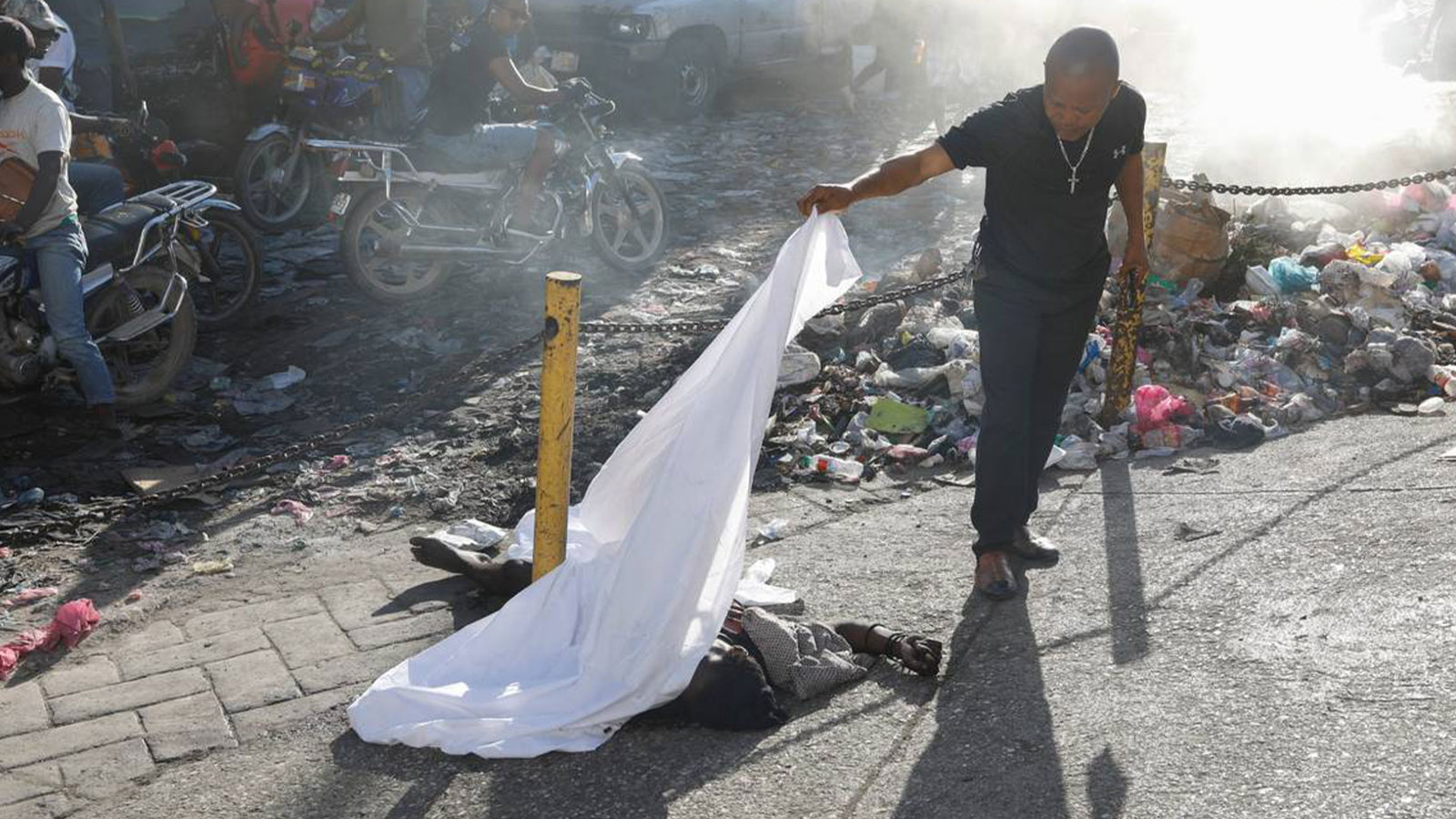By Jacqueline Charles, Miami Herald —
Heavily armed members of Haiti’s armed group continue to wreak havoc in the country’s capital. As the conflict approached a month, bandits on Monday evening, set fire to about a dozen pharmacies on Rue Monseigneur Guilloux, not far from the General Hospital, in downtown Port-au-Prince. In addition to the pharmacies, clinics in the area were looted or burned, adding to an already dire humanitarian situation.
One month ago a united front of armed gang leaders in Haiti launched a coordinated assault on key government buildings, including airports, the main seaport and police stations.
Since then gangs have also targeted hospitals, pharmacies and schools, looting and burning them.
With the violence blocking aid delivery and wrecking an already fragile health system, the United Nations chief child advocate has issued an ominous warning.
“The violence and instability in Haiti have consequences far beyond the risk of the violence itself. The situation is creating a child health and nutrition crisis that could cost the lives of countless of children,” said Catherine Russell, executive director of UNICEF. “Thousands of children are on the brink, while life-saving supplies are ready to be delivered if violence stops and roads and hospitals are opened. This malnutrition crisis is entirely human made. Basic security is urgently needed for the people of Haiti, for the life-saving services they rely on, and for humanitarian workers to reach children and families in desperate need.”
On Wednesday, the agency also strongly condemned an arson attack on a school in downtown Port-au-Prince. The incident has deprived over 1,000 children of the right to an education, UNICEF said.
“Attacks on schools violate children’s rights and international humanitarian law. Schools should be safe spaces and protected at all times. It is hard to believe that children have to live in permanent fear of such attacks,” Bruno Maes, UNICEF’s Haiti director, said in a statement. “This doesn’t have to be their reality. Attacks on children and families must stop, once and for all.”
As children fall victim to shootings and hundreds of schools close amid the escalating violence, here is a look at what Port-au-Prince’s descent into chaos means by the numbers, according to the U.N.
▪ 4.97 million Haitians — half the country’s population — are facing severe hunger.
▪ 10% increase in the number of Haitian children suffering from acute malnutrition is expected between now and November.
▪ 3 out of 4 women and children do not have access to basic public health and nutrition.
▪ More than 362,000 people have abandoned their homes because of gang violence and kidnappings in recent years. About 195,000 of these people are in the west region, which encompasses metropolitan Port-au-Prince. The number also marks a 15% increase in displaced persons since December.
▪ More than 15,000 Haitians have been forced out of their homes since the fresh attacks erupted on Feb. 29.
▪ 200,000 children have been deprived of an education after some 900 schools were forced to close due to violence at the end of January. The schools are located in the metropolitan area of Port-au-Prince and in the northern part of the Artibonite Valley, where threats to school security have been particularly acute.
▪ More than 33,000 people have fled metropolitan Port-au-Prince for other regions of the country over the past three weeks. Most of them have gone south, risking their lives along gang-controlled roads where kidnappings are rampant. Many of the cities in the south are still recovering from a 2021 earthquake.
▪ 80% of Haiti’s capital is under the control of armed groups. However, as the violence has intensified and gang members have moved into wealthy enclaves like Pétion-Ville and elsewhere, some observers fear the percentage is far higher.
▪ 260 cargo containers owned by humanitarian groups at the country’s main seaport are now under the control of armed groups. The seaport has come under repeated attack and critical supplies for children have been looted.
▪ 6 out of 10 hospitals in the capital are out of commission. They face shortages of electricity, fuel, blood products and medical supplies, and some have been looted and burned.
▪ 10 suspected cases of cholera were recorded in 48 hours earlier this week at the Lycée Marie Jeanne camp site in Port-au-Prince.
▪ 7% of the $674 million the U.N. has requested from member nations for humanitarian assistance has been raised so far. The lack of funding means UNICEF, the World Food Program and other agencies are facing a critical shortfall to help needy Haitians.
Jacqueline Charles has reported on Haiti and the English-speaking Caribbean for the Miami Herald for over a decade. A Pulitzer Prize finalist for her coverage of the 2010 Haiti earthquake, she was awarded a 2018 Maria Moors Cabot Prize — the most prestigious award for coverage of the Americas.
Source: Miami Herald















